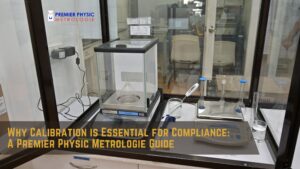Introduction
Calibration is a crucial process in various industries, ensuring that instruments and equipment provide accurate measurements. In the Philippines, where adherence to industry regulations is critical for safety, quality, and legal compliance, calibration plays an essential role. This article delves into the importance of calibration in compliance with Philippine industry regulations, exploring its role across different sectors and offering insights into best practices.
Understanding Calibration
Definition of Calibration
Calibration is the process of configuring an instrument to provide a result within an acceptable range. It involves comparing the measurements of the instrument with a standard to detect any deviations and adjust accordingly.
The Science Behind Calibration
Calibration relies on precise measurements and adjustments to ensure that instruments are accurate and reliable. This process often involves the use of reference standards and traceable calibration equipment to maintain high levels of accuracy.
Calibration vs. Verification
While calibration involves adjusting an instrument to ensure accuracy, verification is the process of checking whether an instrument meets specific criteria without making adjustments. Both are essential for maintaining measurement integrity.
Philippine Industry Regulations
Overview of Industry Regulations in the Philippines
The Philippines has a robust framework of industry regulations designed to ensure safety, quality, and environmental protection. These regulations cover various sectors, including manufacturing, healthcare, telecommunications, and food and beverage.
Importance of Compliance
Compliance with industry regulations is crucial for businesses to operate legally and ethically. It ensures the safety and quality of products and services, protects consumers, and enhances the overall credibility of industries.
The Importance of Calibration in Compliance
Ensuring Accuracy and Reliability
Calibration ensures that instruments provide accurate and reliable measurements, which is critical for maintaining the quality and safety of products and services. Inaccurate measurements can lead to substandard products, safety hazards, and legal issues.
Legal Implications of Non-Compliance
Non-compliance with industry regulations can result in severe legal consequences, including fines, sanctions, and even business closures. Regular calibration helps businesses avoid these legal pitfalls by ensuring their instruments meet regulatory standards.
Case Studies of Compliance Through Calibration
Numerous case studies highlight the importance of calibration in achieving compliance. For instance, a pharmaceutical company in the Philippines improved its product quality and compliance with FDA regulations by implementing a rigorous calibration program.
Calibration in Different Industries
Manufacturing
Role of Calibration in Manufacturing
In the manufacturing sector, calibration ensures that machinery and equipment operate correctly, producing products that meet quality standards. This is critical for maintaining efficiency and reducing waste.
Common Calibration Practices
Common practices in manufacturing include regular calibration of production machinery, quality control instruments, and environmental monitoring equipment.
Healthcare
Importance in Medical Devices
In healthcare, the accuracy of medical devices can mean the difference between life and death. Calibration ensures that these devices provide accurate readings, which is vital for patient safety and effective treatment.
Standards and Protocols
The healthcare sector follows strict standards and protocols for the calibration of medical devices, such as those outlined by the International Organization for Standardization (ISO) and the FDA.
Telecommunications
Ensuring Network Reliability
In telecommunications, calibration ensures that network equipment functions correctly, providing reliable communication services. This is essential for maintaining service quality and customer satisfaction.
Calibration Standards
Telecommunications companies adhere to calibration standards set by bodies like the International Telecommunication Union (ITU) to ensure network reliability and performance.
Food and Beverage
Ensuring Safety and Quality
In the food and beverage industry, calibration is crucial for ensuring the safety and quality of products. Accurate measurements of temperature, pressure, and other parameters are essential for food safety.
Regulatory Standards
The food and beverage sector must comply with regulatory standards set by the FDA and other agencies, which mandate regular calibration of equipment used in production and quality control.
Challenges in Calibration
Common Issues and How to Address Them
Some common challenges in calibration include environmental factors, equipment drift, and human error. Addressing these issues involves regular maintenance, environmental controls, and thorough training for personnel.
Ensuring Consistency
Consistency in calibration is achieved through standardized procedures and regular calibration intervals. This helps maintain measurement accuracy over time.
Maintaining Calibration Schedules
Maintaining an effective calibration schedule is crucial for compliance. This involves regular reviews and updates to ensure all instruments are calibrated on time.
Innovations in Calibration
Technological Advancements
Recent technological advancements have significantly improved the calibration process. These include automated calibration systems, advanced calibration software, and digital calibration certificates.
Automation in Calibration
Automation in calibration reduces human error and increases efficiency. Automated systems can perform calibrations faster and more accurately than manual methods.
Future Trends
Future trends in calibration include the integration of artificial intelligence and machine learning to predict calibration needs and improve accuracy.
Case Studies
Successful Calibration Implementations
A case study of a manufacturing company in the Philippines that successfully implemented a comprehensive calibration program, resulting in improved product quality and compliance with industry regulations.
Lessons Learned from Non-Compliance Cases
An analysis of cases where businesses faced legal and operational challenges due to non-compliance, highlighting the importance of regular calibration.
Expert Insights
Interviews with Industry Experts
Interviews with industry experts provide valuable insights into best practices for calibration and the importance of compliance with industry regulations.
Expert Tips on Maintaining Calibration Standards
Experts offer practical tips on maintaining calibration standards, including the use of advanced tools and regular training for personnel.
Conclusion
Calibration plays a vital role in ensuring compliance with industry regulations in the Philippines. It ensures the accuracy and reliability of instruments, which is essential for maintaining product quality, safety, and legal compliance. By prioritizing calibration, businesses can avoid legal pitfalls, improve efficiency, and enhance their reputation. It is crucial for industries to implement robust calibration programs and stay updated with technological advancements to maintain compliance and achieve success.




